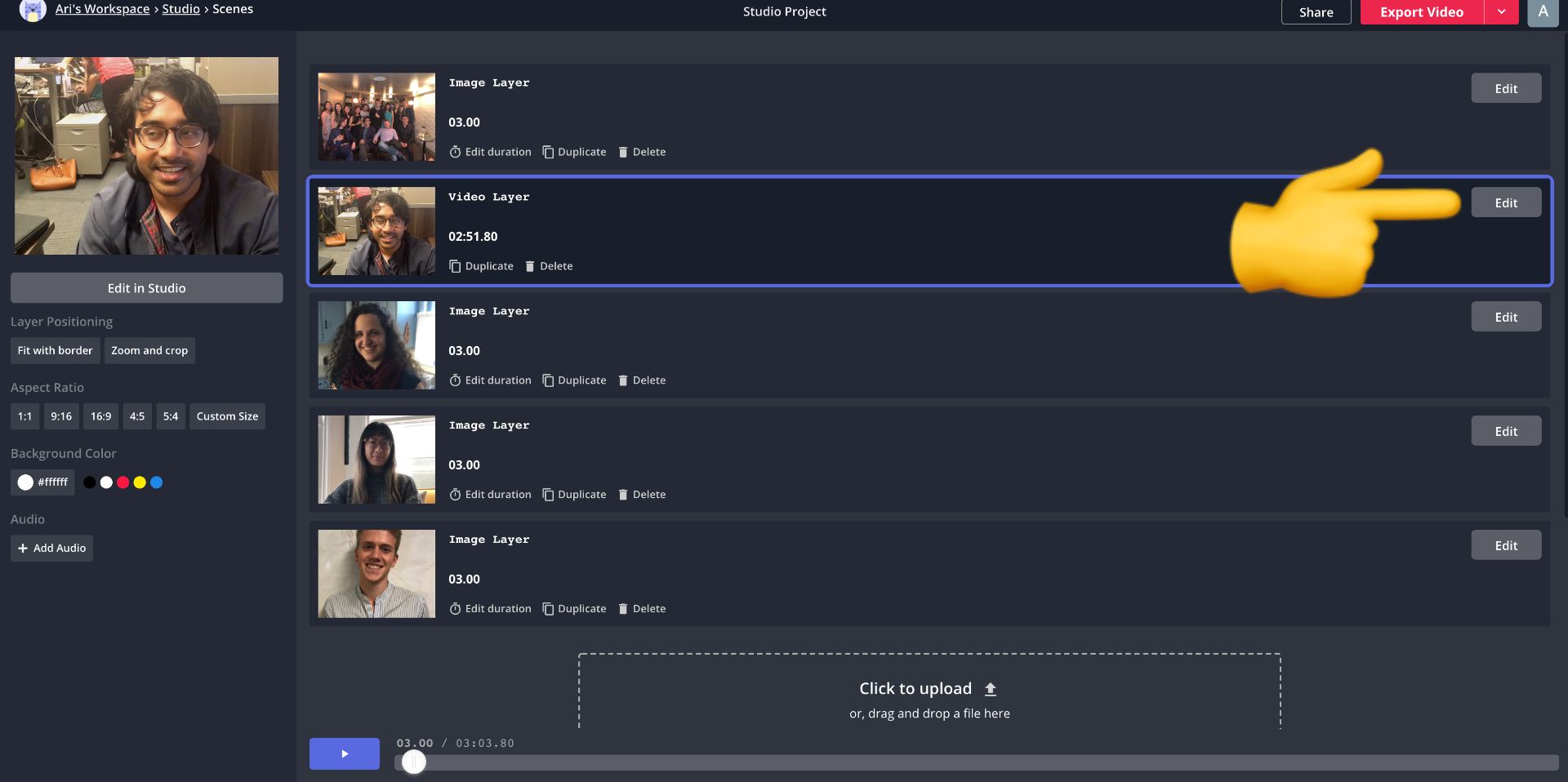


You guys should read manual all the time’ Three are many good in formation! I highlighted important aspect of 3dsMax OSL map for you! Let me just borrow text from 3dsMax help. Custom Default Param Manager has been updated to 1.08.csMergeBy – powered by 3dsMax 2019 Custom Scene File Data Stream.3dsMax 2021.1 Custom Default Parameter – and the manager!.3dsMax DataChannel Modifier Sample Pack 2.3dsMax 2017.1 DataChannel modifier samples.MCG: Trajectory Constraint Rotation Controller.3dsMax 2018 MCG improvement #1 – Easy Map / Live Types / Undo.3ds Max 2016 SP3 MCG performance improvement.3dsMax 2021 OSL Advanced User Interface.3dsMax 2019.3 – OSL Viewport Support : OSL > HLSL.
#How to merg videos in pdplayer how to
UIAccessor mini tutorial – How to control Make Preview dialog.OSL mini tutorial #3 – utilizing scene data and some Math.OSL mini tutorial #2 Random map per tile for SimpleTiles map.Mini OSL tutorial #1 – Random map rotation per tile.3dsMax 2021.3 Retopology Modifier Quick Start – Part.2.3dsMax 2021.3 Retopology Modifier Quick Start – Part.1.How to share your awesome MCGs – MCG Installation and network deployment.3dsMax tips #6 – Viewport GPU caching with Alembic Performance Mode.3dsMax tips #4 – My rig is stuck at the previous animation range!.3dsMax tips #3 How to make imported tree animation 15 times faster.3dsMax tips #1 – 3dsMax.ini setting for file load/save speed up.3dsMax 2021.3 Retopology Tutorials Video Collection.Thousand Oaks: SAGE Publications, Inc., 1995, pp. "Time of Decision, Ethical Obligation, and Causal Illusion: Temporal Cues and Social Heuristics in the Prisoner's Dilemma." Negotiation as a Social Process. Negotiation as a Social Process, Thousand Oaks, CA: SAGE Publications, Inc. Time of Decision, Ethical Obligation, and Causal Illusion: Temporal Cues and Social Heuristics in the Prisoner's Dilemma. Thousand Oaks, CA: SAGE Publications, Inc., 1995. "Time of Decision, Ethical Obligation, and Causal Illusion: Temporal Cues and Social Heuristics in the Prisoner's Dilemma." In Negotiation as a Social Process, edited by Kramer, Roderick M., and David M. Messick (Eds.), Negotiation as a social process (pp. Time of decision, ethical obligation, and causal illusion: temporal cues and social heuristics in the prisoner's dilemma. Scholars, students, and professionals in organization, management, and communication studies will find Negotiation as a Social Process an important and thought-provoking volume. Negotiation as a Social Process covers a wide range of topics, including the role of group identification and accountability on negotiator judgment and decision making, the importance of power-dependence relations on negotiation, intergroup bargaining, coalitional dynamics in bargaining, social influence processes in negotiation, cross-cultural perspectives on negotiation, and the impact of social relationships on negotiation. Editors Rod Kramer and Dave Messick have brought together original theory and research from many of the leading scholars in this important and emerging area of negotiation research. Because negotiations always occur in the context of some preexisting social relationship between the negotiating parties, this neglect is unfortunate.

Although most research has focused on the cognitive aspects of negotiation, few address the impact of social processes and contexts on the negotiation process. This excellent collection explicitly addresses the social and relational context in which negotiations invariably occur and, in doing so, returns the discussion to its proper place.” -Jeff Rubin, Program on Negotiation, Harvard Law School In the past several years, negotiation and conflict management research has emerged as one of the most active and productive areas of research in organizational behavior. Just as one needs two hands to clap (unless you are a Zen Buddhist), one needs two or more sides to negotiate. Consisting of contributions by some of today's leading negotiation researchers, this volume is a direct response to the undue emphasis placed in recent years on the role of cognition in negotiation. Kahn, Professor Emeritus, The University of Michigan “Negotiation as a Social Process puts the ‘social’ back in negotiation theory and research, where it belongs. Kramer and Messick have done their research colleagues a great service let us hope that they make the most of it.” -Robert L. Negotiation as a Social Process attempts the difficult task of the needed reform of a successful field and it does so by example as well as precept…. It is a rare combination of appreciation and criticism it is an eloquent statement of conceptual advocacy.


 0 kommentar(er)
0 kommentar(er)
